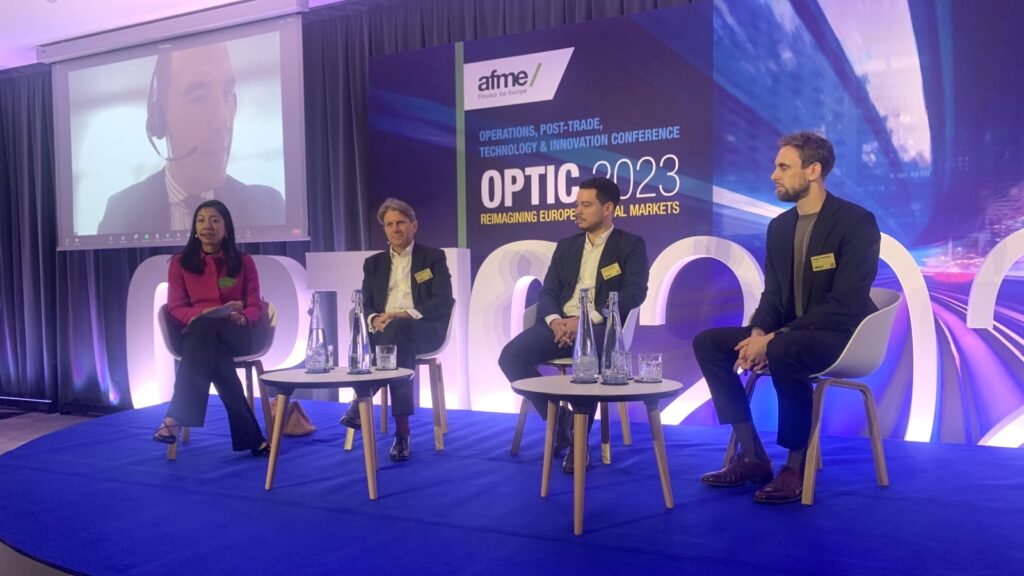Fraud, bad practice and poor governance … Participants in the crypto assets market have had good opportunity for learning, the hard way, lately. A panel at the Optic conference looked into the pace of institutional adoption. The market has slowed down, but the institutional setting is maturing and could well host growth over the longer term.
Concluding that growing up comes with growth pain, AFME’s Coco Chen led a Wednesday morning panel on the topic of the institutional adoption of cryptoassets. Panelists were …
Duncan Trenholme, Managing Director, Global Co-Head of Digital Assets, TP ICAP,
Juan Jiménez Zaballos, Digital Public Policy Director, Santander,
Manuel Nordeste, Vice-president, Fidelity Digital Assets, and
Stéphane Malrait, MD, Head of Market Structure & Innovation, ING Bank.
“The hype is not there, but I don’t think it killed it,” said Stéphane Malrait.
While the need for separating exchange and custodian is well established in traditional finance, the insight is sinking in with large parts of the crypto ecosystem only after the disasters around FTX and others. A discussion is on, whether the area should be specifically regulated or be submitted to the same requirements as traditional asset classes.
Juan Jiménez Zaballos seemed to advocate the latter, suggested it is time to start treating crypto actors like adults. On the discussion of factors that hold back adoption, he pointed, among other things, to Basel capital requirement rules that effectively punish investment banks who hold cryptoassets on their books for trading purposes.
As many people in the public debate have pointed out, a decisive factor for adoption is regulation. Switzerland’s Finma was mentioned as a regulator that has successfully been able to act progressively, creating the basis for a vivid emerging industry.
The audience in the room in Brussels was polled on their trust in the asset class. Answering the question “How would you rate your current confidence in traditional financial market participants adoption of crypto assets, from 0% (lowest) to 100% (highest)?”, the most favoured of four spans was the 50–75% range, phrased as “Confident, but key barriers remain”, scoring 39 percent of the votes.
The yearly Optic conference, in Brussels on 17–18 October 2023, is hosted by the Association for Financial Markets in Europe (AFME). Optic stands for the “Operations, post trade, technology and innovation conference”. PostTrade 360° is there, with our coverage collected here.












